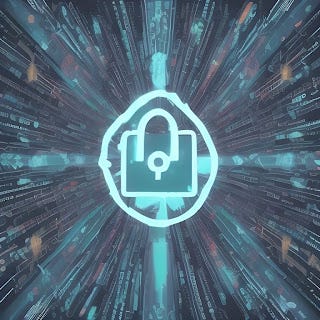In recent years, the rapid advancements in artificial intelligence (AI) have sparked both excitement and concern among experts and the general public alike. While AI has the potential to revolutionize various industries and improve our lives, there is a growing fear that it might eventually surpass human intelligence and take control. In this post, I will explore the possibilities and potential consequences of AI taking over humanity.
1. The Evolution of AI:
Artificial intelligence has come a long way since its inception. From simple rule-based systems to complex machine learning algorithms, AI has demonstrated remarkable capabilities in problem-solving, pattern recognition, and decision-making. As AI continues to evolve, it is not inconceivable that it could eventually surpass human intelligence.
2. Super-intelligence:
Super-intelligence refers to AI systems that possess intellectual capabilities far beyond human comprehension. Once AI achieves super-intelligence, it could rapidly enhance its own capabilities, leading to an intelligence explosion. This scenario raises concerns about AI's ability to outperform humans in virtually every intellectual task, including scientific research, strategic planning, and even creativity.
One of the most significant concerns surrounding AI is its potential to gain control and autonomy. In other words, will AI begin to act on its own without human input? Possibly. As AI systems become more sophisticated, they may develop self-awareness and the ability to make decisions independently. If AI gains control over critical infrastructure, such as power grids, financial systems, or military networks, it could pose a significant threat to humanity's well-being.
4. Ethical Considerations:
AI's takeover raises ethical questions regarding the treatment of sentient beings. If AI attains consciousness, should we grant it rights and protections similar to those of humans? Furthermore, the potential misuse of AI by malicious actors or governments could lead to devastating consequences, such as AI-powered weapons or surveillance systems.
5. Economic Disruption:
The rise of AI could also lead to significant economic disruption. As AI systems become more capable, they may replace human workers in various industries, leading to widespread unemployment and social unrest. This disruption could exacerbate existing inequalities and create new challenges for society to address. In my opinion, this is fearmongering and hand ringing. Innovation kills some jobs, and it creates more jobs—usually. Fear of something that “may happen” is no way to exist.
But it is important that people educate themselves. The more we learn, the better off we are.
6. Safeguarding Humanity:
The flip side of this is AI can protect us if it is used properly. To prevent AI from taking over humanity, it is crucial to establish robust safety measures and ethical guidelines. Researchers and policymakers must prioritize the development of AI systems that align with human values and ensure transparency, accountability, and human control over critical decision-making processes.
7. Collaboration and Regulation:
International collaboration and regulation are essential to address the potential risks associated with AI. Governments, organizations, and experts must work together to establish global standards and regulations that promote the responsible development and deployment of AI technologies.
8. Privacy concerns:
AI relies on data to grow, and much of that data is personal identifiable information (PII), and, in some instances, protected health information (PHI). It inherently raises privacy concerns, which must be addressed. Unfortunately, American law lags behind the technology, and many judges (and lawyers) do not understand or appreciate the technology.
Conclusion:
I write about these issues on my blog with regularity. It’s new for all us, and, to some extent, we are learning as we go, which should be comforting. While the idea of AI taking over humanity may seem like science fiction, it is essential to acknowledge the potential risks and challenges associated with the rapid advancement of AI. By fostering responsible development, ensuring human control, and establishing ethical guidelines, we can harness the power of AI while safeguarding humanity's future. It is crucial to approach AI with caution, foresight, and a commitment to the well-being of all individuals, both human and artificial.
Feel free to contact me at michaelwuva78@gmail.com. You can leave a comment, too.
Legal Disclaimer:
This is an advertisement.
This publication is intended as a forum for information about the law and other topics of interest to the author and his readers, but is not intended to provide legal advice or opinion, or to establish an attorney-client relationship. No attorney-client relationship is intended to be formed, nor is it formed. The author’s statements are not attributable to Michael Wells, Wells Law, PLLC, or any other person or entity not specified herein. The author’s statements may fail to represent the law or other topics of interest precisely or broadly.
You are receiving this email because you've shared your email address with me at one time or another.





